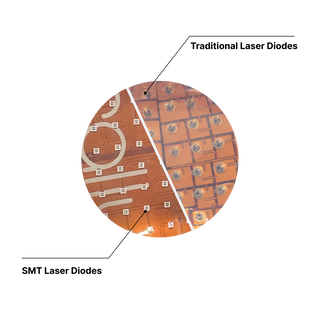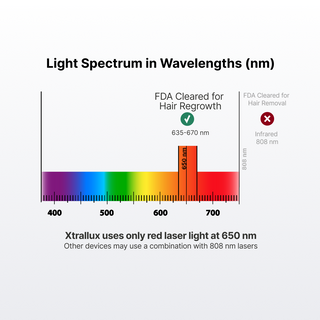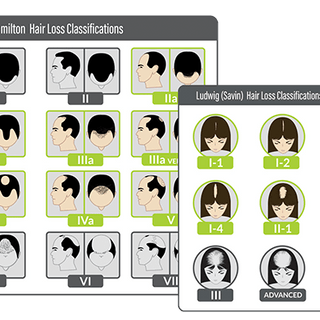Polycystic Ovary Syndrome (PCOS) is a hormonal disorder common among women of reproductive age. Women with PCOS may have infrequent or prolonged menstrual periods or excess male hormone (androgen) levels. The ovaries may develop numerous small collections of fluid (follicles) and fail to release eggs regularly.
Here's why PCOS can cause hair loss:
Hormonal Imbalance: PCOS leads to an imbalance in female and male hormones. Increased levels of male hormones, especially testosterone, can lead to hair thinning and loss on the scalp.
Insulin Resistance: Many women with PCOS have insulin resistance, meaning their bodies can make insulin but can't use it effectively, increasing the risk of type 2 diabetes. Insulin resistance can also lead to weight gain, affecting hormonal balance and thus influencing hair loss.
Inflammation: Chronic low-level inflammation has been observed in PCOS, which can contribute to androgenic alopecia (hair loss).
Genetic Predisposition: Women with PCOS may also have a genetic predisposition to hair loss, which the hormonal imbalances caused by PCOS exacerbate.
It's important for individuals with PCOS who are experiencing hair loss to consult with a healthcare provider. They can provide appropriate diagnosis and treatment options, including lifestyle changes, medication to regulate hormones, or therapies targeting hair loss. Additionally, products like the Xtrallux Hair Regrowth Cap, utilizing low-level laser therapy, might be beneficial in promoting hair growth. However, discussing such options with a healthcare professional familiar with one's specific medical history is always best.
Can Xtrallux Laser Caps help with PCOS?
Low-Level Laser Therapy (LLLT), such as the technology used in the Xtrallux Hair Regrowth Cap, is effective in treating hair loss due to Androgenetic Alopecia (AGA), commonly characterized by pattern balding. AGA is influenced by genetics and hormones, similar to hair loss experienced in Polycystic Ovary Syndrome (PCOS).
PCOS can lead to an increase in androgens (male hormones) in the body, which can cause hair thinning similar to AGA. Since LLLT has been effective in treating AGA by stimulating hair follicles and promoting hair growth, it's possible that it also may be beneficial for hair loss related to PCOS.
However, it's important to note that each individual's situation is unique, especially when considering a condition as complex as PCOS. The effectiveness of LLLT in such cases might vary, and it's crucial to consult with a healthcare provider before starting any new treatment. They can provide a personalized approach based on your condition and overall health.
For those fitting the indications for LLLT use, like having Fitzpatrick Skin Types I to IV and experiencing mild to moderate hair loss, the Xtrallux Hair Regrowth Cap offers a convenient and drug-free option to promote hair regrowth. It's designed for easy, daily use, and its clinically proven technology ensures safety and efficacy in treating hair loss.






